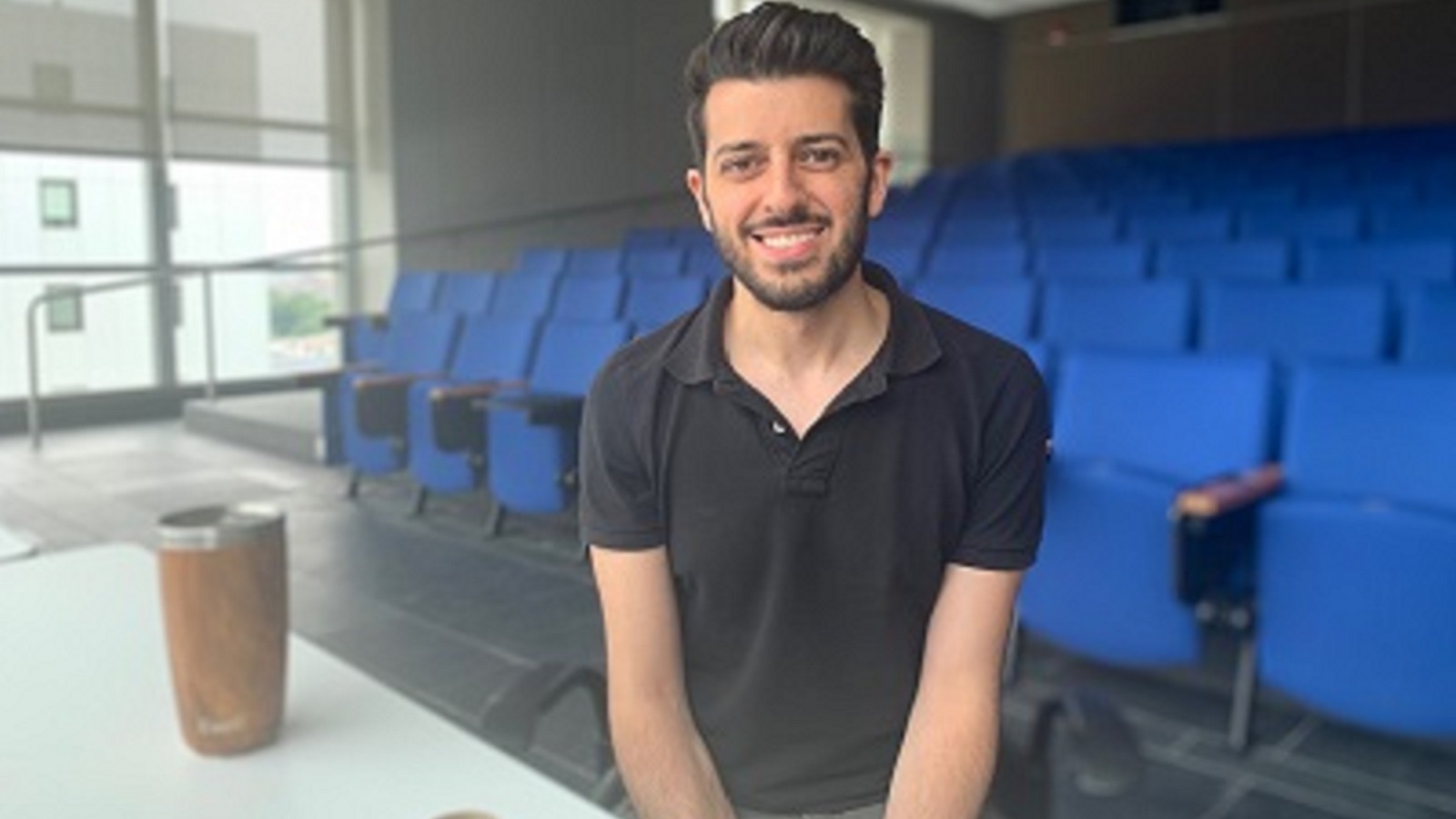Seated in a state of the art, royal blue auditorium, Jimmy Kamel folds his hands and softly conveys, “my ultimate goal is to continue giving quality care to a population that some people felt weren’t particularly welcome at Fenway Health.” After seven years of clinical training as a Nurse Practitioner (NP), the foundation of Kamel’s work is driven by the need to support a widely underserved population. Kamel’s work is made possible by Medication for Addiction Treatment (MAT), a program designed to strengthen clinician support of patients with Substance Use Disorder (SUD). Kamel and his colleagues at Fenway participated in a one-year HRSA-funded program at the Center for Primary Care focused on increasing the number of NPs and PAs who are waivered and prescribing MAT. Kamel works directly to introduce MAT to already established community health clinics with Fenway Health, currently functioning at two locations: Roxbury and Cambridge. Both clinics serve as “safe havens…a place where people suffering from SUD can get something to eat and sleep.” Kamel believes that harm reduction strategies – actions as simple as providing a safe space – can make people with SUD feel more welcomed and cared for.
The program has three goals in mind: 1) increase the number of waived PAs and NPs, 2) double the number of patients on MAT, 3) increase the confidence of PAs and NPS to care for patients with SUD. Since the launch of the program in November 2017, Kamel notes that Fenway Health has 100 actively enrolled patients in the program, nearing their goal for doubling. In addition, the number of waived NPs and PAs has increased from 1/3 to ½ with 45 total providers waived. From clinical to administrative work, Kamel constantly asks, “what could other support look like and what role could they have to engage with the patient, especially patients who are harder to engage with?” High-acuity substance use case managers became a paramount component of the SUD clinics to engage in specific, patient-oriented care. The general role of a high-acuity substance case manager is to provide case management and health navigation services, and coordinate referrals to community resources for patients enrolled in Fenway Health’s MAT Program. As Kamel described, the case managers keep the population engaged as, “motivators, allies, collaborative problem-solvers, and health care advocates to increase patient retention within respective programs.”
Fenway Health, like many other health care organizations, operates in an environment of rapid change and unpredictability. Kamel worries that the bandwidth to sustain such success is limited due to the lack of staffing. He chuckles as he exclaims, “we are double the number of patients with no increase in staff!” He worries that as a Federally Qualified Health Center (FQHC), “Fenway Health is a very pretty and special place…some people weren’t ready for the level of acuity that some of the patients brought [to Fenway Health].” Push-back was common but never averted Kamel from continuing his work. MAT, as Kamel stated, was pivotal in connecting providers who did not have the same knowledge base and resources to others who were in similar situations. For instance, he notes, “the importance of networking and to have a shared dialogue with people who are doing similar work, and to learn from each other has been eye-opening and invaluable exposure.” The MAT Program ensured that, throughout the PDSA cycles, he felt supported and could receive constructive criticism from other clinicians. As a result of having several conversations with providers from many different backgrounds, Kamel understood the hesitance some providers have when considering the process of being waived. “It’s overwhelming, and people are burnt out…this is a population group that no one wants to treat because no one has to,” stated Kamel. MAT provided a “space to try out a small intervention and helped hone in on areas within MAT in most need of revision and troubleshooting in a network of providers.”
Kamel’s commitment to serving people suffering from SUD is evident in his work with MAT, especially hiring high acuity case managers to support high-risk patients and to engage with individualized care. “We’re seeing more and more patients who for the first time are getting involved in patient care. If it wasn’t for MAT, they wouldn’t be getting treatment for HEPC or HIV…it’s great to use this as a stepping stone for other issues.” At the heart of Kamel’s work, MAT supported his passion to serve “the best patients because they teach you and having the opportunity to work exclusively with this population was an unexpected privilege that I get to do day in and day out.”
Learn more about primary care challenges and innovation solutions to overcome them at the 2019 Primary Care Conference on October 5th in Boston, MA:
info.primarycare.hms.harvard.edu/primary-care-conference
*Priyanka K. Naithani is a junior at Clark University, pursuing International Development and Political Science. She aspires to work in public policy to promote women’s rights, improve the quality of healthcare, and support social entrepreneurship/innovation.
Interested in learning about more news like this?
Sign up for our bi-weekly newsletter.
- Share
-
Permalink


